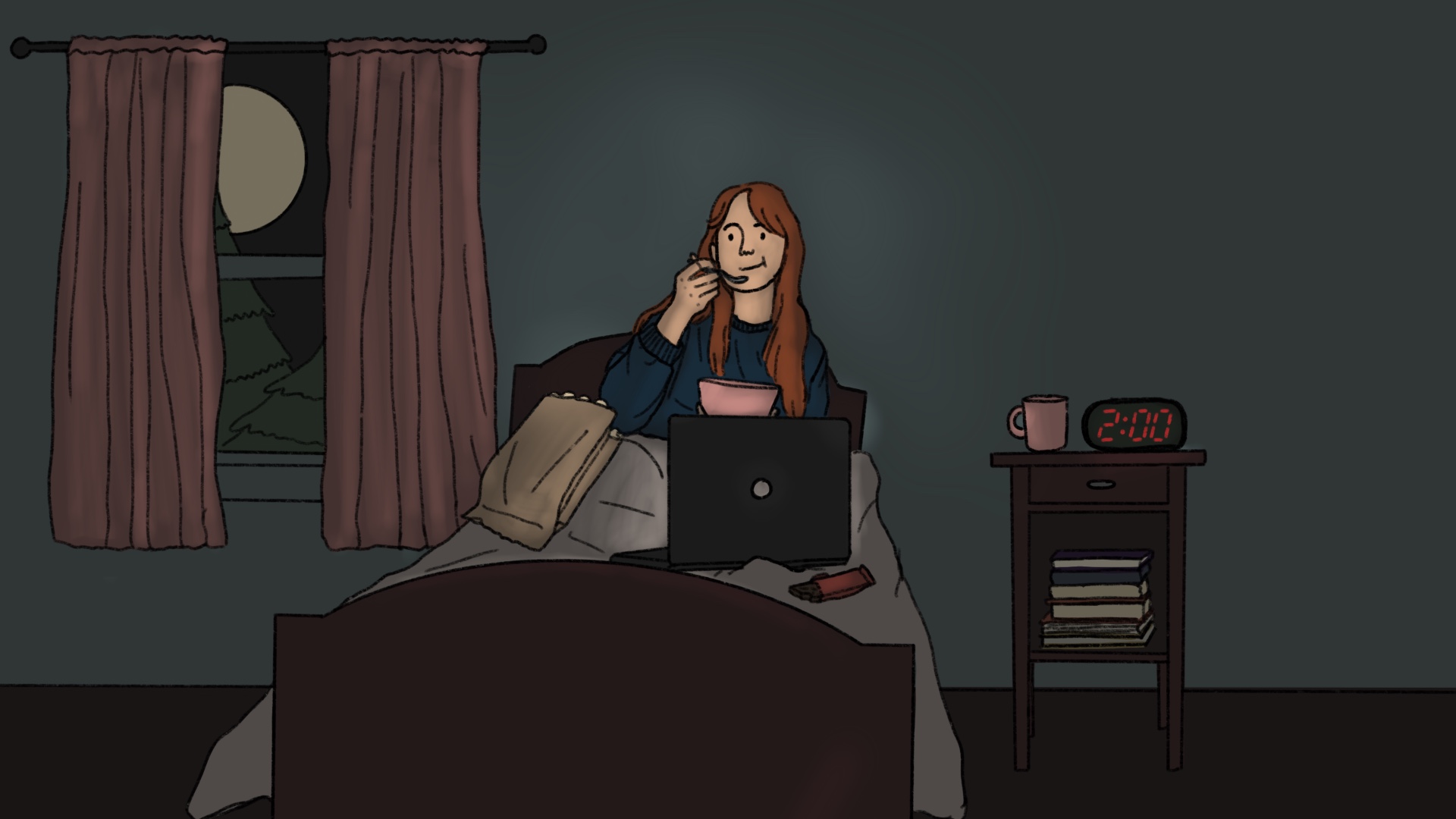University education is usually characterized by endless assignments and a constant race to keep up with readings and deadlines. Therefore, one could imagine that procrastination is the natural enemy of students' productivity.
However, have you ever tried to define procrastination? We usually think of procrastination as synonymous to laziness and as the opposite of productivity, but are these assumptions true?
According to behavioural scientists, procrastination is a problem with the way you think as opposed to the way you work — it is a failure of self-regulation. Putting things off is not necessarily the opposite of being productive. As a result, overcoming procrastination is not as simple as downloading productivity apps or making fancy weekly planners.
The psychology of procrastination
Some researchers define procrastination as a decision to delay a task that we know needs to be completed now. This contrasts with prioritization, where less important tasks are delayed in favour of more urgent ones.
In an environment that is oriented toward achievements — such as the university — procrastination has negative psychological, moral, and performance-based effects. Although most people would procrastinate at some point, it may become a chronic tendency for some. People often become ensnared in a feedback loop that prompts them to judge themselves as unproductive and less dependable. The consequences of chronic procrastination can be especially bad for students when they affect academic performance, which in turn increases anxiety and self-doubt.
Effective procrastination bootcamp
The initial stage of overcoming procrastination is to debunk common myths about it and learn to strategically prioritize tasks. There are ongoing studies in the field of cognitive science that offer practical action plans for optimizing our performance. Here are my top picks of such myths for first-year students to understand:
- "I do my best work under pressure."
The habitual thought of 'I have to get this done or else' is usually associated with anxiety. In order to strike a balance between our emotions and work habits, we can set up a series of 'proximal goals.' Essentially, you do this by breaking up a big project into smaller pieces, or action items, with specific deadlines. With manageable smaller goals, you can indulge in checking off your overwhelming to-do list while decreasing the possibility of missed deadlines.
- "I work most creatively under pressure."
Do not let external consequences dictate how you perceive the value of your work. There are differences between taking a break to rejuvenate your creative mind and postponing an assignment to the point of completing it in one big, last-minute binge of productivity. You may designate creative breaks for nurturing new ideas, but do eliminate as many distractions as you can when you are working. For example, turn on the 'Do Not Disturb' mode on your phone. This is an occasion to follow your heart's desire, also called intrinsic motivation.
- "I'm a perfectionist, so I put things off."
Contrary to common perception, perfectionists tend to procrastinate less than other people. True perfectionists recognize procrastination as an imperfect approach to completing a project or assignment. However, perfectionists strive to achieve the best possible result, so they are less hesitant to seek help. To avoid falling into that trap, attend office hours and reach out to your professors and teaching assistants when you encounter challenges. You must be your own advocate and assert your needs. Otherwise, no one will know that you are having trouble.
Can I strategically delay some tasks?
Procrastination and strategic delay can appear similar, but the difference between them lies in the underlying intentions and their mental and behavioural consequences.
If you procrastinate, delaying challenging and important tasks to seek comfort in more relaxing and joyful activities, you may experience benefits in the short term. However, in the long term, you may not be able to achieve your goals. Ultimately, this may lead to feelings of guilt, shame, and stress.
In contrast, strategic delay means that you put off less important tasks, in order to prioritize more pressing ones. This implies that a cost-benefit analysis is being done to determine that the benefits of delaying a task outweigh the potential negative consequences. Those who strategically delay tasks do not experience the guilt and stress associated with the delay that procrastinators might experience.
Your health is a priority
When it comes to procrastination, a person's mental well-being plays a key role in their behaviour. Highly anxious people are more likely to procrastinate, because in the moment, avoiding the anxiety associated with a task can be more gratifying than the delayed benefit of having finished the anxiety-inducing task.
So, the most important thing to keep in mind when starting your studies is to ensure that your mental and physical health take the highest priority. Many studies have shown that better mental health correlates with better academic performance across different age groups.
A component of many intervention approaches is cognitive behaviour therapy, which supports the idea that procrastination is mostly related to mental well-being.
By changing your mindset and the way you tackle your university assignments, you can avoid falling into the trap of procrastination.
